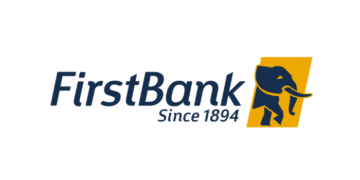There are significant ramifications for startups in the transition to a cashless economy in an increasingly electronic and connected world. Although many places still accept traditional cash transactions, the move toward digital payment methods, cryptocurrencies, and financial technologies or fintech is quickening.
This thorough blog looks at what lies ahead for startups that choose not to implement a cashless economy, emphasizing obstacles, lost opportunities, effects on competitiveness, legal issues, and adaption tactics.
1. Comprehending the Cashless Economy
A cashless economy is one in which all transactions take place electronically, usually using digital wallets, debit and credit cards, mobile payment applications, and online banking systems. Technological developments, customer preferences for security and convenience, and government programs to cut back on cash usage and improve financial transparency are the main forces behind this change.
2. Startups’ Obstacles in Not Adopting Cashless Transactions
Businesses that refuse to accept cashless transactions may face several difficulties:
Limited Customer Reach: Customers like companies that provide easy payment choices in an increasingly digital environment. Businesses that only accept cash transactions can find it difficult to draw in tech-savvy clients who value digital convenience.
Operational inefficiencies: Handling cash transactions requires a lot of work and is prone to mistakes by people. Handling cash hurts operational profitability and efficiency due to costs associated with safety, transport, and manual accounting.
Missed Growth Opportunities: Startups may lose out on chances to grow their business, penetrate new markets, and serve clients abroad who prefer transactions without currency if they do not adopt digital payment systems.
Competitive Disadvantage: Competitors that adopt cashless technologies can offer faster, more secure, and seamless payment experiences, gaining a competitive edge in customer acquisition and retention.
3. Effects on Customer Experience and Competitiveness
Consumer Expectations: Whether making payments online or off, modern consumers anticipate a seamless experience. Startups that do not prioritize digital security and ease over cashless solutions run the risk of losing clients to rivals.
Increased Efficiency: Cashless transactions increase operational efficiency and customer happiness by streamlining payment procedures, cutting down on transaction times, and helping businesses manage their cash flow.
Innovation and Adaptation: Startups are encouraged to develop and adjust to changing market trends and consumer preferences by adopting cashless technology. The use of automated tools like theimmediateflare.com/de promotes a customer-focused and technologically advanced culture that positions startups for longevity.
4. Regulatory Considerations and Compliance
Regulatory Environment: To combat tax evasion and money laundering and to improve financial transparency, governments across the globe are progressively supporting cashless projects. Regulations about cybersecurity, data protection, and digital payments must be complied with by startups.
Legal Frameworks: To reduce legal risks and foster stakeholder trust, businesses must have a solid understanding of the legal frameworks governing consumer protection, digital transactions, and financial laws.
5. Methods for New Businesses to Adopt the Cashless Economy
To prosper in a cashless economy, startups had to employ the following tactics:
Adopt Digital Payment Solutions: To accommodate a range of consumer preferences, incorporate safe and intuitive digital payment systems, such as online payment gateways, contactless payments, and mobile wallets.
Boost Cybersecurity: Put strong cybersecurity measures in place to safeguard consumer information, stop fraud, and guarantee adherence to data protection laws (such as the CCPA and GDPR).
Educate Staff and Customers: Offer staff training courses on customer service tactics, cybersecurity best practices, and digital payment methods. Inform clients on the advantages of cashless transactions and the safe usage of digital payment options.
Partner with Fintech Providers: Work together with fintech firms to take use of their knowledge of blockchain technology, digital payments, and innovative financial services. Investigate joint venture opportunities to incorporate cutting-edge fintech solutions that improve consumer engagement and operational effectiveness.
Keep an eye on Market Trends: Learn about new developments in digital currencies, fintech, and regulations that affect the cashless economy. Adjust business plans appropriately to take advantage of opportunities and reduce risks.
6. Prospects & Opportunities for the Future
In the future, businesses that adopt the cashless economy stand to benefit from:
Encourage Innovation: Provide fresh approaches to customer engagement, fintech applications, and payment methods that meet consumer expectations and current digital trends.
Increase Market Reach: To facilitate business growth and scalability, reach worldwide markets, and serve foreign clients with seamless digital payment experiences.
Boost Customer Loyalty: Provide safe, practical, and customized payment choices that improve the overall customer experience to win over tech-savvy customers’ confidence and loyalty.
Attain Operational Excellence: Using effective digital payment systems and process automation, you may maximize financial management, lower transaction costs, and simplify business operations.
Types Of Cashless Transactions That Startups Should Learn
For startups to remain competitive and efficiently meet customer requests, they need to get familiar with several forms of cashless transactions. For companies trying to maximize their financial operations and client relations, it is imperative that they take advantage of cutting edge technology like quantum AI, which can augment automated trading capabilities. The following are the main categories of cashless transactions that entrepreneurs should focus on understanding:
1. Digital Wallets And Mobile Payments
The way that customers use their cellphones to make purchases has been completely transformed by mobile payments and digital wallets. Popular mobile payment systems like Apple Pay, Google Pay, Samsung Pay, and other local equivalents should be integrated with startups. These systems make use of Near Field Communication (NFC) technology to provide contactless payments online and at retail establishments. Digital wallets offer speed and ease of use to both consumers and companies by securely storing payment information. With its complex algorithms, quantum artificial intelligence (AI) can evaluate transaction patterns instantly, improving trading tactics and maybe increasing revenue for financial market companies.
2. Gateways for Online Payments
Startups can take payments for goods and services purchased through e-commerce thanks to online payment gateways, which provide safe online transactions. Payoneer, Square, PayPal, and Stripe are a few examples of platforms that accept several payment methods, such as digital wallets, bank transfers, and credit/debit cards. Here, quantum AI is crucial because it automates fraud detection, payment trend analysis, and transaction processing speed optimization. Startups may increase the security and effectiveness of their payment platforms with quantum AI, which will increase customer trust and boost conversion rates.
3. Transactions Using Cryptocurrencies
Alternative digital currencies like Bitcoin, Ethereum, and other cryptocurrencies are becoming more and more popular. Startups that want to use blockchain technology for safe, decentralized transactions should investigate taking cryptocurrency payments for goods and services. As an effective trading tool, quantum AI can monitor patterns in the cryptocurrency market, carry out trades automatically using pre-programmed algorithms, and successfully manage cryptocurrency portfolios. Quantum AI integration can help startups reduce risks and instantly take advantage of market opportunities in their Bitcoin operations.
4. Payments via Contactless
Through the use of NFC technology, contactless payments allow quick transactions by just touching or waving in front of a terminal that is compatible with credit/debit cards, cellphones, or wearable electronics. Customers who are worried about convenience and hygiene will find this method appealing since it speeds up transactions and minimizes physical contact. By identifying irregularities and possible fraud trends in transaction data, quantum AI can improve the safety of contactless payment systems, protecting sensitive client data and upholding confidence.
5. P2P (peer-to-peer) Transfers
P2P transfers eliminate the need for traditional banking middlemen by allowing people to send funds directly to one another using the Internet or mobile apps. To improve consumer satisfaction and engagement, startups might incorporate peer-to-peer (P2P) transfer features into their platforms to enable instantaneous payments between users. Through the analysis of transaction patterns, the detection of questionable activity, and the use of automated trading methods to increase transaction efficiency, quantum AI may enhance peer-to-peer transaction processes.
In Summary
In conclusion, there are several obstacles in the way of client acquisition, operational effectiveness, competitiveness, and compliance with regulations for startups that choose not to embrace the cashless economy. Startups need to embrace fintech innovations and digital payment solutions to survive in a business climate that is becoming more connected and technologically sophisticated.
Startups may position themselves as pioneers in the cashless economy, fostering innovation, broadening their market reach, and attaining long-term success in the digital era by emphasizing digital transformation, improving cybersecurity protocols, training stakeholders, and keeping an eye on industry developments.
We’ve got the edge. Get real-time reports, breaking scoops, and exclusive angles delivered straight to your phone. Don’t settle for stale news. Join LEADERSHIP NEWS on WhatsApp for 24/7 updates →
Join Our WhatsApp Channel










